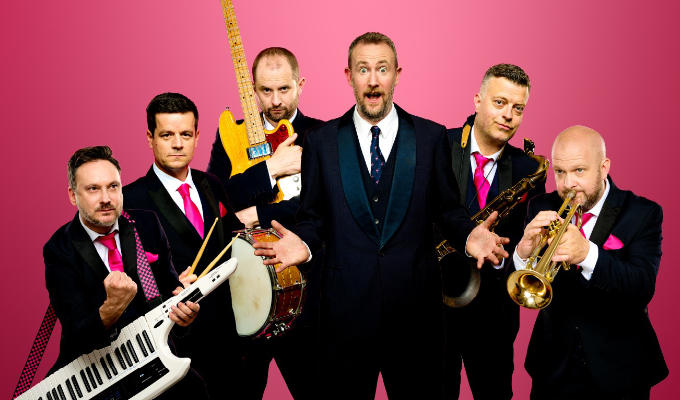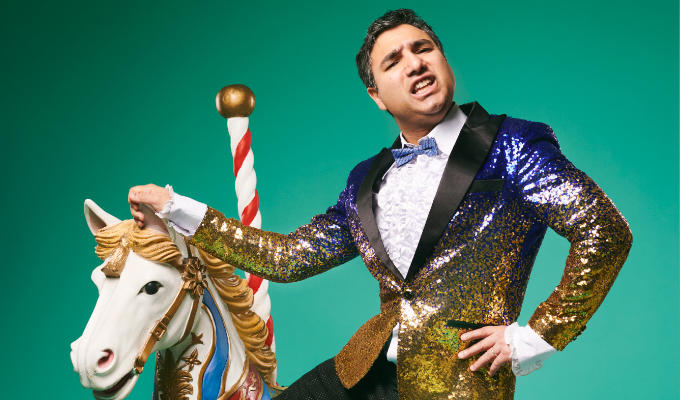'They exploit comics'
Dubious practices at more open-mic nights
Two more ‘bringer’ and ‘pay-to-play’ gigs have been accused of exploiting comedians on London’s open mic circuit desperate for stage time.
Charlie’s Comedy Club offers a financial incentive for acts based on them bringing friends to a show, rather than how funny they are, echoing the ‘bringer’ system blamed for crippling the New York comedy scene.
Meanwhile, The Golden Jester competition is accused of effectively operating a pay-to-play policy, despite corporate sponsorship by drinks company Magners and the Belushis bar chain, because entrants must bring at least one paying punter to their heats.
Get Up! Stand Up! at Charlie in Shoreditch promises open spots a paid, ten-minute slot at a future gig if they bring five people to watch them perform. Although not advertised, the fee is £15.
One comedian, who does not wish to be identified, said of the weekly Monday night: ‘It’s a con because the bar wants people in on a Monday and it’s a good way of getting comedians to be the audience. They’re taking advantage of new acts. Rather than giving them a platform to perform, they just want them in the pub to make a profit from them buying drinks.
‘I increasingly do more gigs outside of London because I’ve progressed a bit. But it’s almost a joke now that you gig in London. There are some very good gigs but ones like these are a problem.’
Charlie’s has previously run a competition that rewarded the winner with a paid compere slot and bottle of wine, which was said to ‘denigrates’ the role of the MC.
‘It’s a skill, you don’t get it for bringing loads of people, you get it from setting up your own night and being a good act.’
Naomi Hefter, who has been a stand-up for three years, performed at Get Up! Stand Up! last Monday.
She confirmed that ‘it was all just comedians in the audience, which disappointed me because I’m doing a show for Edinburgh. When I’m trying out new material, obviously I need people I don’t know, normal audience members judging my material. Comedians will laugh at anything because they want the laugh too.’
She said none of the acts brought the requested five friends and added: ‘It would be bad form to not do the gig when you turn up and see that, but it’s a bit deflating.’
Comic Al Cowie says he organised a single gig at Charlie Wright’s for one night before discovering the set-up ‘was not as I supposed'.
‘These nights exploit comedians,’ he said. ‘Charlie’s in particular uses the wrong language [in their advertising]. And you tend to attract audiences who are naïve about comedy. They go along, see a few crap comics and never go to see comedy again.’
Mike Calderbank, who runs Get Up! Stand Up! under the pseudonym John Toby Smith, denies that the financial incentive makes it a bringer gig ‘because it’s free entry and the acts are welcome to come along and practice their material. They don’t even have to buy any drinks. We’re offering a platform that offers no advantage to us if they don’t bring anyone’.
He admits that last week’s audience was low and mostly comprised of comedians ‘but it was freezing cold on Monday so I’m sure a lot less people were inclined to come out. We have great weeks where some people, half the line-up, have brought a couple of friends each. It’s hit or miss really.’
Meanwhile, The Golden Jester is the latest competition to be accused of running a pay-to-play system. Comedians can enter the contest for free, but they must be accompanied by a paying audience member.
Hardly any comedy competitions of note charge an entry fee, whatever venues, comperes and posters they pay for. ‘Any night that runs pay-to-play or forces you to bring somebody and forces them to pay is exploitative’ maintains Cowie.
Stand-up Alan Sellers, who organises the competition insisted: ‘The reason that we do it is that we want to ensure a good atmosphere for the acts. We also include a raffle and have a pro comedian come on at the end of the night doing new material
‘We’ve had the likes of Shazia Mirza doing 15 minutes as part of the price. It ensures the atmosphere because there are so many competitions where you have a room of ten acts and hardly any audience, which obviously doesn’t fly well with anyone.
‘I don’t think it’s pay to play because it’s the audience paying, not the acts. And the feedback we’ve had has been fantastic. When we started it two years ago, we had 110 acts enter the competition. Last year we had 450. This year, we’ll have 700.’
The competition’s final is decided by a panel of industry experts as well as audience voting. And Sellers denies a bias towards acts with the greatest number of friends because ‘we’ve got quite a sophisticated scoring system, whereby even if an act brings five or ten people, they’re not guaranteed to get through because of a sliding scale percentage that we take off, depending on what proportion of that act’s friends are in the audience.’
Sellers points to last year’s winner, Paul David Collins, who brought just one friend to each round of the competition.
Collins confirms that: ‘I live miles outside of London and all my friends are local, so bringer gigs are difficult and I very rarely get to do them. Happily, I have one mate who works in London who said he'd come along to the first round as a favour and then stuck with it because he enjoyed the night. I can clearly recall seeing other acts with tables full of supporters and feeling slightly resentful.’
He added: ‘I certainly think they make an effort to be fair. I've been in quite a few competitions and I do think the Golden Jester guys take the fairness angle as seriously as they can. But I also think it's almost impossible to come up with a judging system that somebody, somewhere won't find fault with.
‘For what it's worth, I've certainly done competitions where I've seen weaker acts who had brought more supporters on the night go through over stronger acts.’
- by Jay Richardson
Published: 18 Mar 2013






